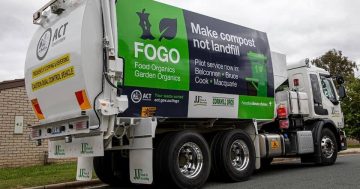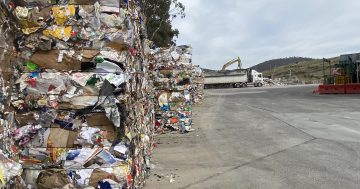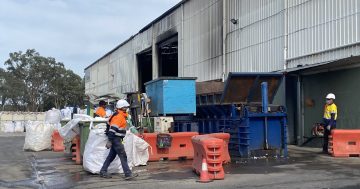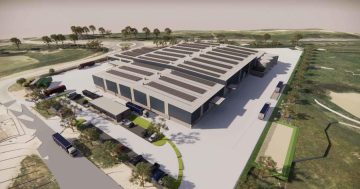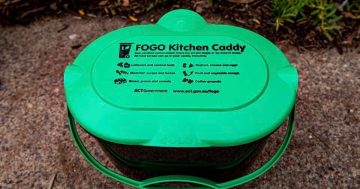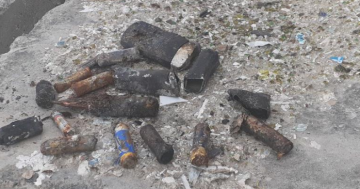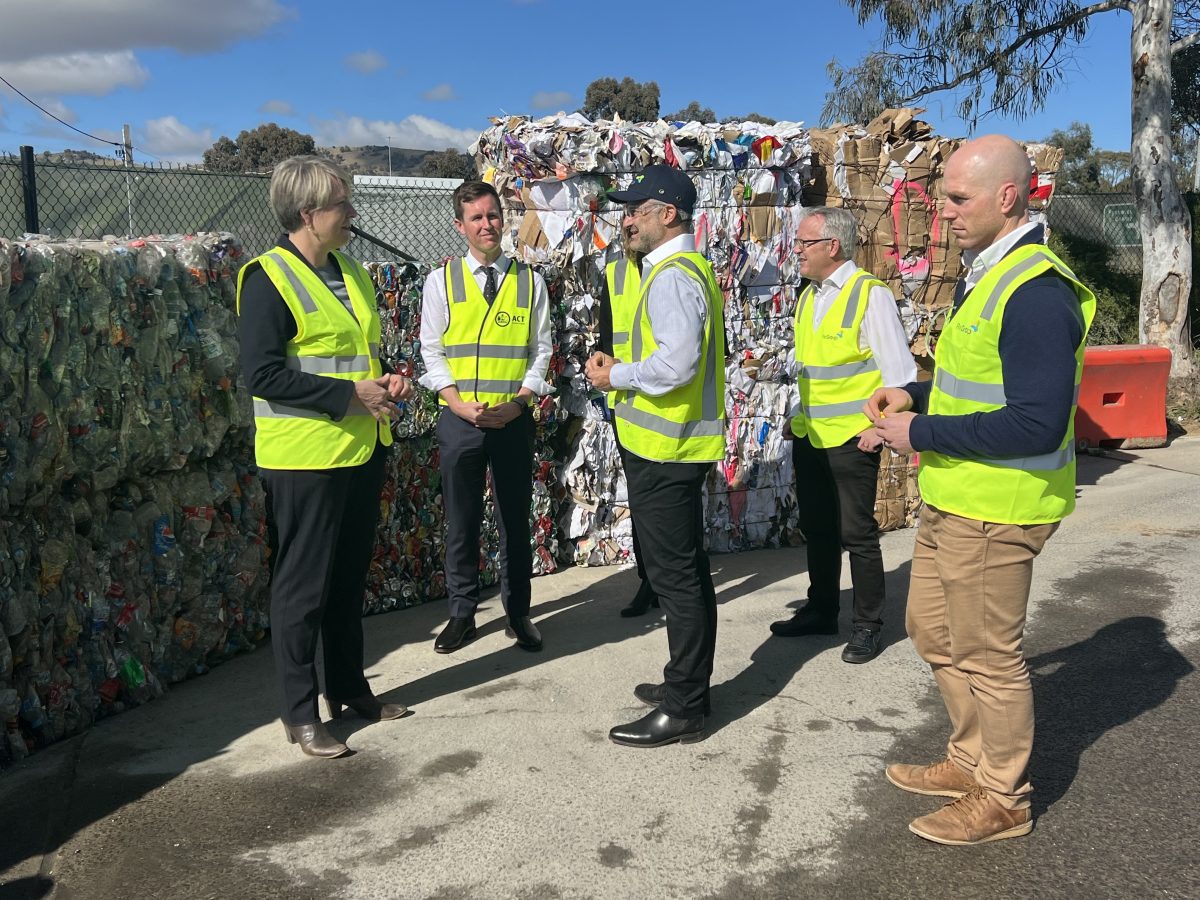
Environment Minister Tania Plibersek, City Services Minister Chris Steel and Senator David Pocock at the waste facilities announcement at Mugga Lane. Photo: James Coleman.
The announcement this week of two waste facilities at Hume to deal with food and garden organic waste and recycling is a great step towards a better approach to how we deal with our refuse.
Significantly, the two facilities will be built with Commonwealth assistance after the end-of-waste export to China spurred the federal government to become more involved in doing something about the nation’s rubbish.
The FOGO idea seems such a no-brainer that one wonders why it has taken so long to happen, particularly as the by-product will be a rich source of compost that can be used in gardens and agriculture.
Scaled up, the implications for application across the nation’s farms, which currently rely on synthetic fertilisers and are at the mercy of international events such as the war in Ukraine, are enormous.
The non-organic side of the waste problem presents far greater challenges but come down to the same issue of changing the way we do business.
Coinciding with the announcement, Greens MLA Jo Clay released an Options Paper on the Circular Economy which argues that with a million tonnes of waste a year and growing, the ACT can’t recycle its way out of the mess we are creating.
From household materials to building and construction waste, the mountain of rubbish keeps growing.
The paper argues that we must avoid creating waste in the first place, partly by removing unsustainable products from the waste stream.
But also by eschewing the modern consumer lifestyle we are so enmeshed in.
That is something that is going to take a lot to turn around, given our so-called quality of life is built on cheap disposable products with built-in obsolescence and gauged by the amount of stuff we can accumulate.
But, of course, all the time, we are wracking up a bill that is coming due faster than we’d like.
Clay also points to the embedded carbon emissions in many products, particularly in our homes.
Industry is aware of this and the need to reduce carbon exposure as the world tries to meet its emission reduction commitments.
For example, in Canberra, Elvin Group is committed to low-carbon concrete, recycling and green energy.
The use of sustainable materials in building and other sectors is not just an ethical question but one that industry will need to eventually address as part of its legal and competitive responsibilities, Clay says.
“What we’re going to find is if we haven’t taken these steps now, in 10 years’ time, the cost of doing business will be higher,” she says.
Unfortunately, the ACT’s recent record when it comes to the big recycling proposals that may have helped reduce the 200,000 tonnes of construction waste that crosses the border a year has not been great, falling to the clash of interests in Fyshwick.
The Greens led the charge, particularly on waste-to-energy incineration, but all political parties concluded that Fyshwick was no longer appropriate for recycling facilities to expand.
Finding appropriate locations in Canberra for private industry to conduct such operations remains an issue.
Clay says reducing the amount of construction in Canberra by limiting urban sprawl and knockdown rebuilds is part of the answer. However, the city still needs to house its growing population and provide a reasonable housing choice.
Even the shape of the recycling industry will need to be examined, including whether plastic and other petroleum-based materials can be retained safely in use, given the proliferation of plastic and micro-plastics in river systems and the ocean.
Recently there was the story of a baby green sea turtle rescued from a Sydney beach that had eaten so much plastic it took six days for it to be excreted.
Banning single-use plastics such as straws and containers is just the tip of the iceberg that eventually will have to be dealt with, not to mention swapping synthetic fabrics for natural fibres.
But Clay is excited at the potential of the two proposed facilities.
“My vision is that anything you buy in a supermarket will be able to go into one of your bins at home and go into one of those facilities,” she says.
“So it’ll be a cornstarch product that actually doesn’t cause contamination, or it’ll be a renewable resource packaging materials that can get processed in our materials recovery facility.”
For those already involved in the composting business in the ACT, Clay sees them supporting the government FOGO facility as part of an ecosystem.
But really, we are just at the start of a transformation in the way we live, consume and care for the planet, and there will be costs for businesses and consumers.
We will need to innovate, abandon what we know is not, and never was, safe, and adopt or revisit replacements that will sustain our quality of life.
It will need leadership from government and industry, just as is required in the fight against global heating, and solutions that can be of a scale sufficient to fix the problem.












